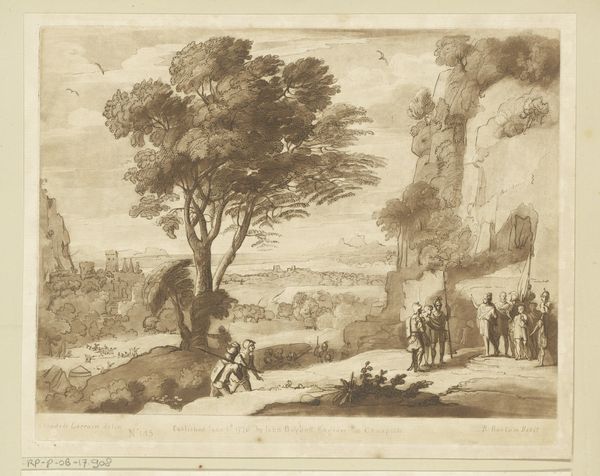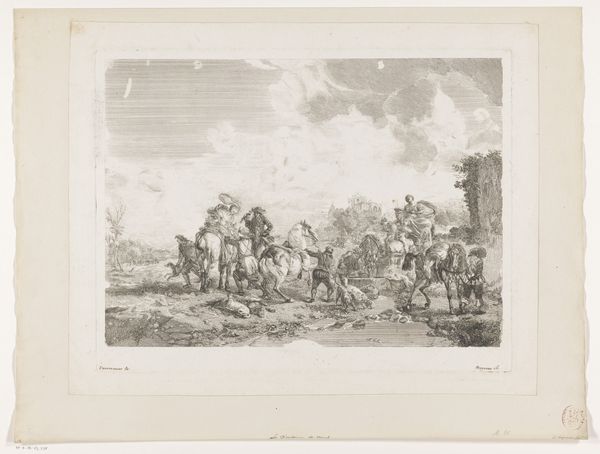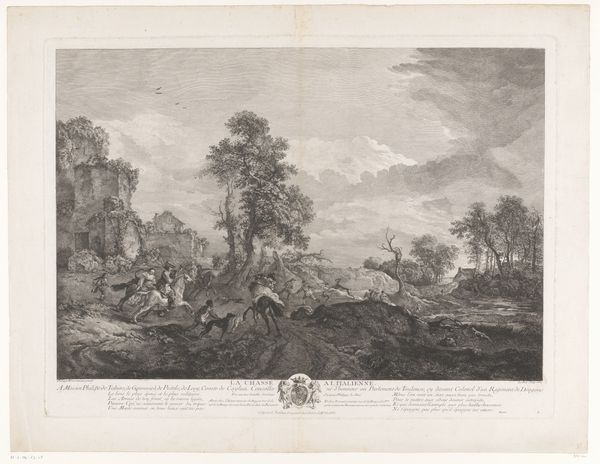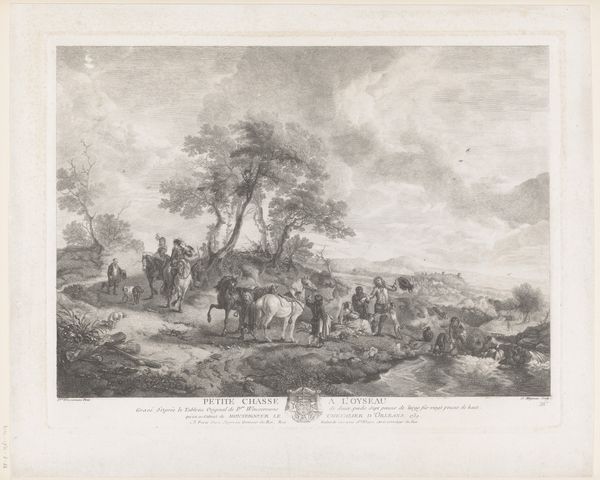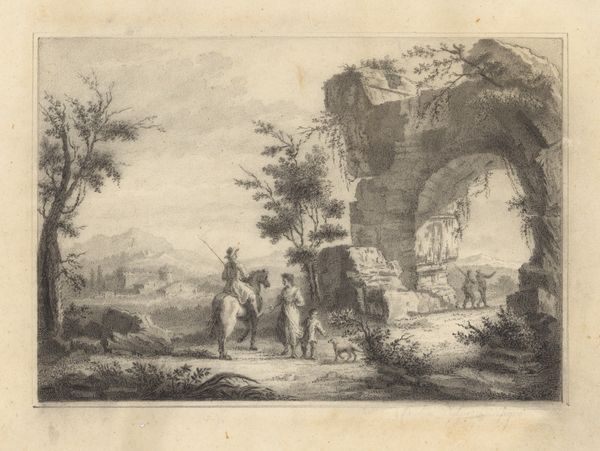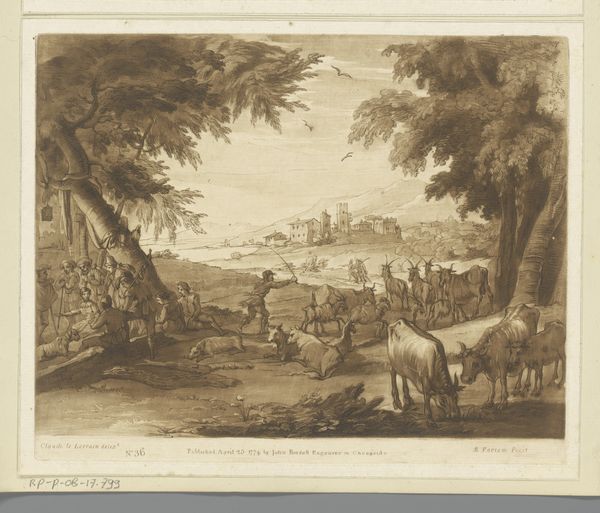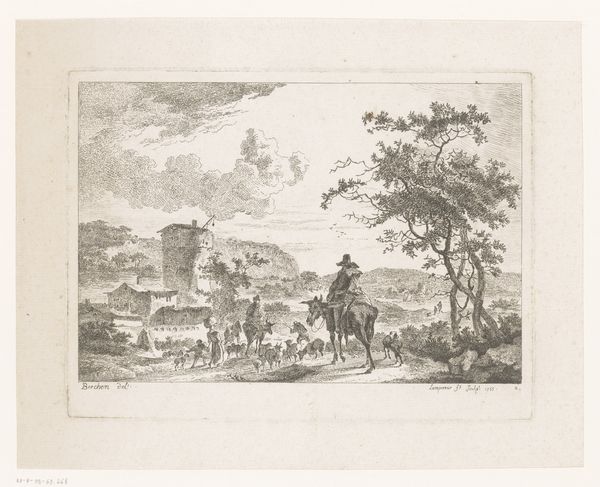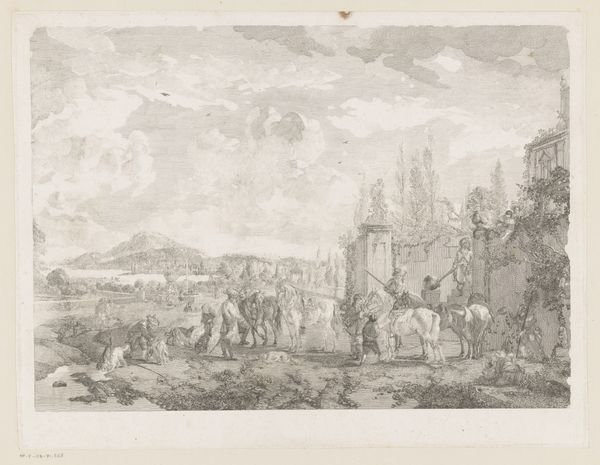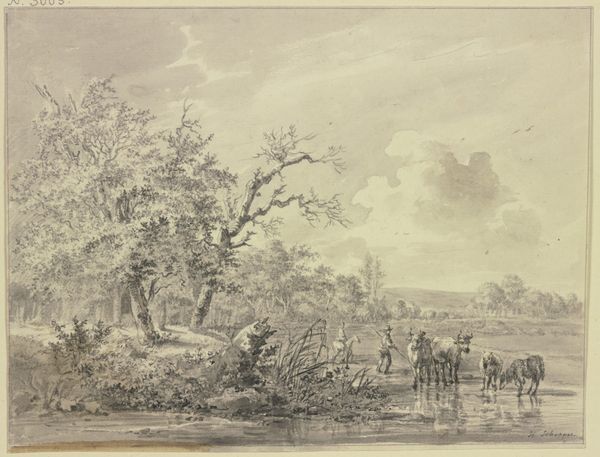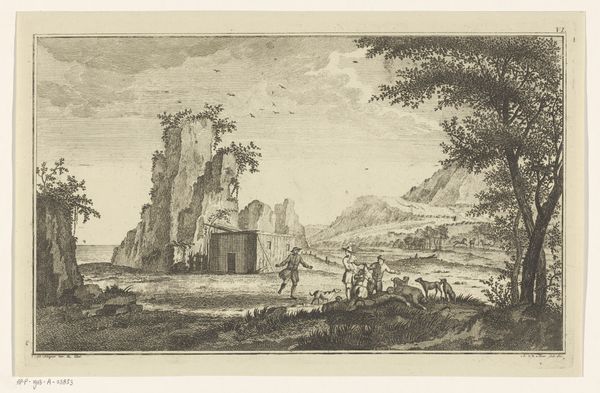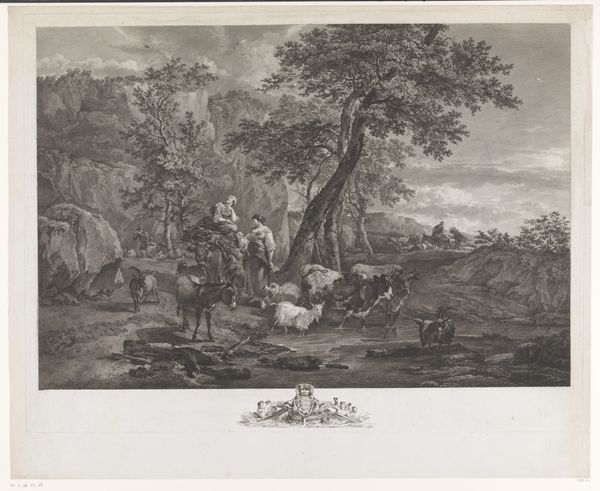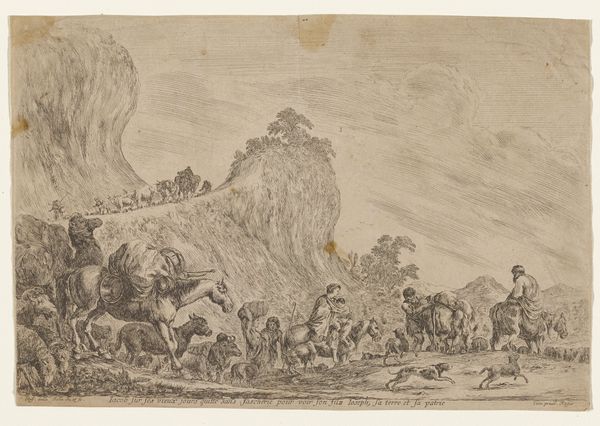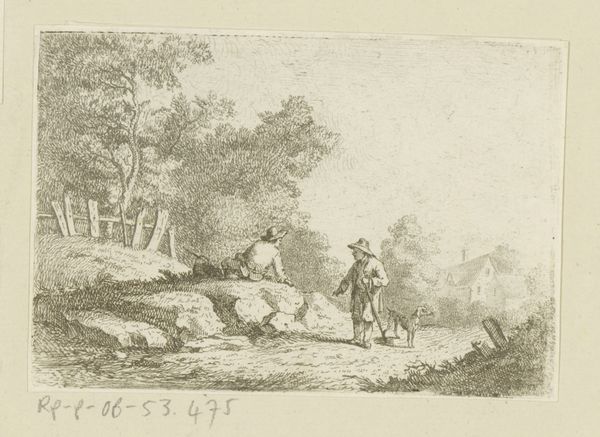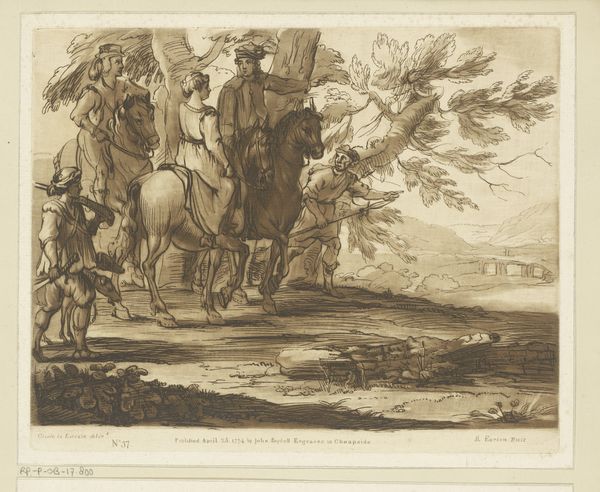
drawing, etching, paper, ink
#
drawing
#
etching
#
landscape
#
etching
#
paper
#
ink
#
pencil work
#
genre-painting
Dimensions: height 251 mm, width 375 mm
Copyright: Rijks Museum: Open Domain
Curator: Here we have Jean François Janinet’s "Landscape with Riders by a Gate," likely created between 1768 and 1814. It's an etching, rendered in ink on paper. Editor: Immediately, I'm struck by its dreamlike quality. Everything feels ephemeral, like a memory fading at the edges. It's predominantly monochrome; I am curious about that! Curator: The sepia tones contribute to that, I agree. The ruin in the backdrop surely speaks of nostalgia, the passage of time. The gate might symbolize a threshold, a crossing over. Notice how the riders proceed through it. Editor: Absolutely. And it begs the question: What was Janinet's access to those expensive materials and artistic training needed for these types of prints? Did it lead to patronage or other lucrative opportunities? Also, the repetitive strokes needed for hatching across a large plate would take tremendous labor! Curator: Indeed. Also, the people here are almost secondary; mere suggestions rather than fully defined individuals. Is that meant to imply the commonality of the experience, the universality of journey? Genre painting, often, does deal with shared experience of life. Editor: Perhaps. Or is the focus primarily on evoking a romantic past? Consider the intended audience and how these prints may have circulated as collectibles for the rising bourgeoisie, objects reflecting on nature's majesty. We should wonder how images like these were traded or bartered in a system of exchange, because art is both work and vision. Curator: A fascinating way to consider its context, the material circumstances behind this artwork. We’re often prone to interpreting imagery based on cultural memory; it’s good to also wonder at what this type of labor and production signified at the time for artists, as well as what type of social exchange it involved. Editor: Exactly! It’s crucial to move beyond simple aesthetic readings, and probe how the value of such craft relates to larger economic currents. Ultimately, this piece brings to light how human endeavors always operate in concert with systems, whether ideological, social, or material. Curator: Agreed, let's both keep those levels of interaction in mind as we move through the collection. Editor: Absolutely.
Comments
No comments
Be the first to comment and join the conversation on the ultimate creative platform.
